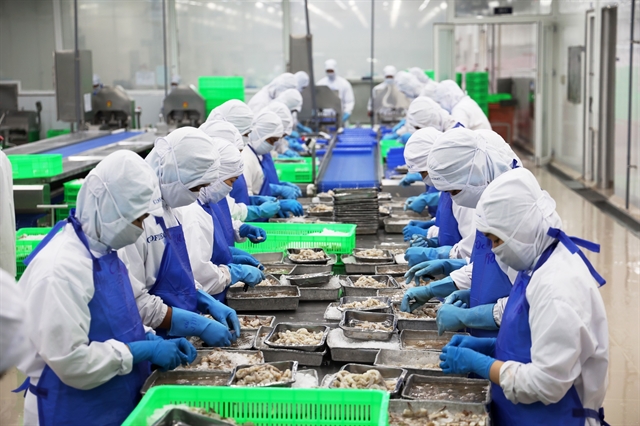 Economy
Economy


|
| Shrimp processed for exports. Around 80 per cent of Vietnamese companies reported rising costs stemming from changes in tariffs and trade uncertainty, the HSBC report found. — VNA/VNS Photo Hồng Đạt |
HÀ NỘI — Vietnamese firms are facing steeper cost increases than the global average due to tariffs and trade uncertainty, according to HSBC’s Global Trade Pulse 2025 survey.
The survey released recently found that 80 per cent of Vietnamese companies reported rising costs stemming from changes in tariffs and trade uncertainty. Short-term cost pressures are expected to persist, with 82 per cent of Vietnamese firms anticipating further increases. In comparison, on the global scale, two – thirds of respondents have already experienced cost increases.
Supply chain delays and disruptions also had a notable impact on Vietnamese businesses, leading to an average 20 per cent drop in revenue – two percentage points above the global average.
“Controlling expenses is now the top concern in supply chain management,” the report concluded.
Despite challenges, 81 per cent remain optimistic about future international growth, while 76 per cent say trade volatility has spurred them to seek new business opportunities.
The report found that globally, 83 per cent of businesses say they have already begun or are planning to nearshore as part of their strategy to increase resilience and minimise the impacts of tariffs and trade uncertainty.
Still, more than half of surveyed firms said that they needed external support in planning to deal with crisis and developing resilience.
According to the country head of Global Trade Solutions at HSBC Vietnam, Surajit Rakshit, working capital is now a key priority for enterprises, largely due to it being tied up in inventories and receivables.
He emphasised the importance of adaptive strategies, urging firms to be flexible and cultivate resilient partnerships. — VNS




